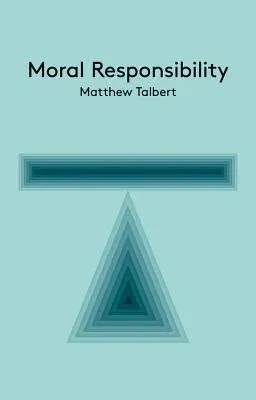Matthew Talbert
(Author)Moral ResponsibilityHardcover, 19 January 2016

Qty
1
Turbo
Ships in 2 - 3 days
In Stock
Free Delivery
Cash on Delivery
15 Days
Free Returns
Secure Checkout

Part of Series
Key Concepts in Philosophy
Part of Series
Polity Key Concepts in Philosophy
Print Length
192 pages
Language
English
Publisher
Polity Press
Date Published
19 Jan 2016
ISBN-10
0745680585
ISBN-13
9780745680583
Description
Product Details
Author:
Book Format:
Hardcover
Country of Origin:
GB
Date Published:
19 January 2016
Dimensions:
21.84 x
13.97 x
2.03 cm
ISBN-10:
0745680585
ISBN-13:
9780745680583
Language:
English
Pages:
192
Publisher:
Weight:
340.19 gm